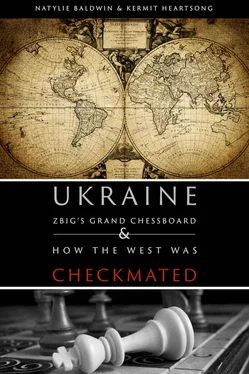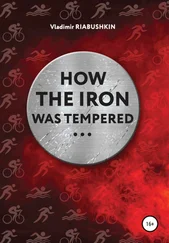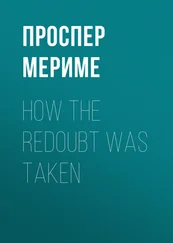Kermit Heartsong - Ukraine - ZBIG's Grand Chess Board & How The West Was Checkmated
Здесь есть возможность читать онлайн «Kermit Heartsong - Ukraine - ZBIG's Grand Chess Board & How The West Was Checkmated» весь текст электронной книги совершенно бесплатно (целиком полную версию без сокращений). В некоторых случаях можно слушать аудио, скачать через торрент в формате fb2 и присутствует краткое содержание. Год выпуска: 2015, Жанр: Политика, на английском языке. Описание произведения, (предисловие) а так же отзывы посетителей доступны на портале библиотеки ЛибКат.
- Название:Ukraine: ZBIG's Grand Chess Board & How The West Was Checkmated
- Автор:
- Жанр:
- Год:2015
- ISBN:нет данных
- Рейтинг книги:4 / 5. Голосов: 1
-
Избранное:Добавить в избранное
- Отзывы:
-
Ваша оценка:
- 80
- 1
- 2
- 3
- 4
- 5
Ukraine: ZBIG's Grand Chess Board & How The West Was Checkmated: краткое содержание, описание и аннотация
Предлагаем к чтению аннотацию, описание, краткое содержание или предисловие (зависит от того, что написал сам автор книги «Ukraine: ZBIG's Grand Chess Board & How The West Was Checkmated»). Если вы не нашли необходимую информацию о книге — напишите в комментариях, мы постараемся отыскать её.
Ukraine: ZBIG's Grand Chess Board & How The West Was Checkmated — читать онлайн бесплатно полную книгу (весь текст) целиком
Ниже представлен текст книги, разбитый по страницам. Система сохранения места последней прочитанной страницы, позволяет с удобством читать онлайн бесплатно книгу «Ukraine: ZBIG's Grand Chess Board & How The West Was Checkmated», без необходимости каждый раз заново искать на чём Вы остановились. Поставьте закладку, и сможете в любой момент перейти на страницу, на которой закончили чтение.
Интервал:
Закладка:
•The fear that the newly appointed government in Kiev would not recognize the East or their rights, based upon the above
On March 16, 2014, perhaps as a direct result of the above and other provocations, 82 percent of the Crimean population went to the voting polls, 96 percent of whom answered “yes” to the referendum to join the Russian Federation.
The legitimacy of the referendum was also validated by 135 international observers from 23 countries, which included members of the EU, international law experts, and human rights activists.
Of course, the West/NATO and their attendant media were up in arms over the Crimean referendum. Western leaders from the US, UK, France, Germany, and Poland were unanimous in their condemnation of the Crimean referendum and Putin’s acceptance of Crimea into the Russian Federation. Without exception, the various Western leaders immediately deemed the move “a violation of international law,” “unacceptable by the international community,” “illegal and illegitimate.”
Yet as Alexander Mezyaev (2014) pointed out in his article, “Is the Crimean Referendum Legal?:
The United Nations International Court of Justice handed down an advisory opinion in 2010 saying unambiguously that the unilateral declaration of independence is in accordance with the international law. A referendum-based decision is not a “unilateral declaration of independence”. The Court’s ruling was related to the unilateral declaration of independence by the illegitimate government of Kosovo and Metohija. In the case of Crimea the government is democratically elected and legitimate. There are no international norms to be violated; such norms simply do not exist. (Mezyaev 2014)
The Western strategic goal to evict Russia from its Crimean military and naval bases was thus neutralized, another piece from its chessboard rendered to the side: captured, if you will, by Russia.
Sanctions Backfire
The West, led by Washington, has leveled several rounds of sanctions at Russia for invading and annexing Crimea (despite a democratic referendum) and destabilizing Ukraine (though there appears to be quite a bit of evidence to the contrary). Sanctions were first aimed at individuals in the Russian government, Russian oligarchs, and select Ukrainians. Later rounds of sanctions targeted Russian industry — banking, oil, gas, and technology.
The intended purposes of the West’s, and specifically US-inspired sanctions against Russia were three-fold. The sanctions had been leveled to 1) exclude Russia from international markets (isolation), 2) inhibit the growth of Russia’s domestic economy (economic strangulation), and 3) block the development of Russia’s South Stream pipeline project and thus further European and Russian integration.
These, of course, have long been the tactics associated with the Grand Chessboard strategy and have little to do with Russia’s phantom destabilization/aggression campaign in the Ukraine. As described by geopolitical analyst Eric Draitser (2014) in the article, “Waging War Against Russia, One Pipeline at a Time”:
There have been a number of attempts by the US and its partners to derail Russian pipeline development, and, as a corollary, to continue to promote projects that undermine Russia’s position in the energy market of Europe. Indeed, it seems that Europe, and by extension the US, is attempting to leverage their political clout in Eastern Europe to block Russian development and, simultaneously, keep those countries subservient to the West. (Draitser 2014)
However, it appears that the various sanctions leveled at Russia have indeed backfired.
Russia did not immediately retaliate against sanctions by the West, however, when it did retaliate its sanctions were targeted to economically and politically disrupt the sanctioning countries. Russian sanctions targeted agricultural products from the EU, Australia, Canada, Norway, and the US. As noted by Tyler Durden (2014) in the article, “Europe Furious That Putin Dares to Retaliate to Sanctions, Blames Economic Slide on Kremlin”:
Either Europe is run by a bunch of unelected idiots, or… well, that's about it. After blindly doing the US' bidding over all propaganda matters Ukraine-related, and following just as blindly into round after round of US-inspired sanctions, sanctions to whose retaliation Europe would be on the frontline unlike the largely insulated US, Europe appears to be absolutely shocked and is apoplectic that after several rounds of sanction escalations, Russia finally unleashed its own round of sanctions and yesterday announced a 1 year ban on all European food imports, something which will further push Europe into a triple-dip recession as already hinted by Italy yesterday. (Durden 2014)
It is, indeed, interesting that Europe neglected to consider that after several rounds of politically motivated sanctions, Russia might level its own sanctions.
However, the longer-term implications of the Western sanctions will be the growth and revitalization of Russia’s domestic produce markets, which will replace the banned goods. Additionally, Russia seeks to diversify imports from other nations — Latin America, China, etc., in order to meet its domestic needs (Durden 2014).
Russia quickly realized that the only way to free itself from future rounds of sanctions-as-economic-warfare was to quickly leave the Western economic universe. The steps taken to date:
•Russians have en masse sold off their dollar holdings and repatriated their money from US banks back to Russia.
•Russia has sold or reallocated $105 billion in Treasury notes from the Fed’s custody accounts (Durden 2014).
•Gazprom, a Russian gas company, will only accept payments for its gas in rubles and yuan (Durden 2014).
•Russia and China are moving to create an alternative to the international banking transaction system, Society for Worldwide Interbank Financial Telecommunications (SWIFT), while China’s UnionPay payment system, a version of Visa and MasterCard, is ready to provide the infrastructure for Russia to establish its own payment system (RT 2014).
•Russia and Iran have banded together to strategically outmaneuver Western sanctions
•Finance is rapidly moving from the Western world to a non-Western world, de-dollarization model (Simha 2014).
•Russia and China have agreed to a joint venture to produce wide-body aircraft, while Russia and India seek to come to terms on mid-sized aircraft (Simha 2014).
•Russia, as allied to the BRICS founded a new $100 billion Development Bank and a $50 billion infrastructure fund in July, as an alternative to the World Bank and IMF, free of austerity devices (Ford 2014).
•Russia and China have developed closer ties economically, politically, and militarily.
•Chinese banks are stepping in to finance projects and provide development capital that Western sanctions have banned, which completely defeats Western oil/gas funding sanctions (Durden 2014).
As a result of the above and as stated in the sections “No Gas for The EU?” and “The Dollar Falls” EU gas security and the US Dollar as the world’s reserve currency have both been dealt a devastating blow.
And a final, no doubt, unintended consequence of Western sanctions, was President Putin’s approval rating which has soared to over 80 percent.
Despite these facts, there are yet other glaring sanctions backfires that would not be deemed a viable plot for a straight-to-video film, as it would be considered too unbelievable.
In 2011, Rosneft, Russia’s largest state run oil company, and ExxonMobile entered into a joint venture to drill in Russia’s Arctic North Murmansk region. The projections were that a discovery of between 750 million to 1 billion barrels of oil would be found at a gross dollar amount equal to $7.5 to $10 trillion (Engdahl 2014). On September 27, 2014, Rosneft and ExxonMobile announced the discovery of a massive new oil field in the Kara Sea (Engdahl 2014). The oil field is estimated to contain more than 9 billion barrels of oil or 9 times the maximum amount projected in 2011. And as part of its agreement with Rosneft, ExxonMobile spent $600 million to drill the first well, which would represent the most expensive drilling operation in ExxonMobile’s history.
Читать дальшеИнтервал:
Закладка:
Похожие книги на «Ukraine: ZBIG's Grand Chess Board & How The West Was Checkmated»
Представляем Вашему вниманию похожие книги на «Ukraine: ZBIG's Grand Chess Board & How The West Was Checkmated» списком для выбора. Мы отобрали схожую по названию и смыслу литературу в надежде предоставить читателям больше вариантов отыскать новые, интересные, ещё непрочитанные произведения.
Обсуждение, отзывы о книге «Ukraine: ZBIG's Grand Chess Board & How The West Was Checkmated» и просто собственные мнения читателей. Оставьте ваши комментарии, напишите, что Вы думаете о произведении, его смысле или главных героях. Укажите что конкретно понравилось, а что нет, и почему Вы так считаете.











